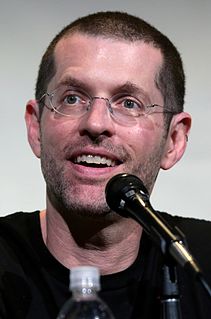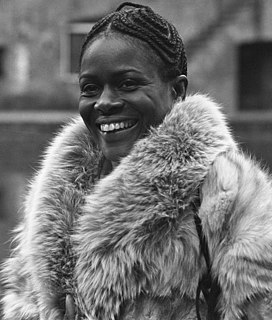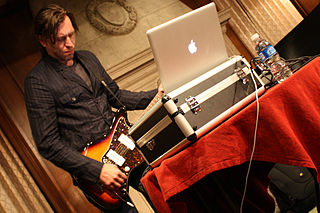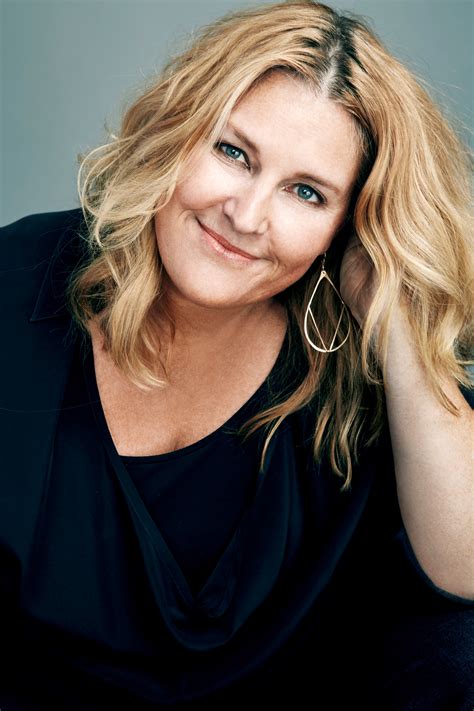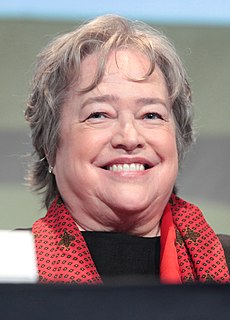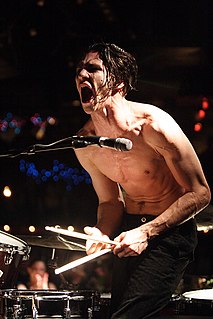Ein Zitat von DB Weiss
Ich habe eine große Kurt-Vonnegut-Phase durchgemacht. Aber die Autoren, die mich schon sehr früh zu der Entscheidung brachten, dass ich das wahrscheinlich tun wollte, waren Stephen King und Douglas Adams, als ich wahrscheinlich etwa zehn Jahre alt war.
Verwandte Zitate
Was auch immer unsere Schlafenszeit als Kinder war, wir konnten eine halbe Stunde länger wach bleiben, wenn wir lasen. Meinen Eltern war es egal, solange ich im Bann eines Stephen King oder Douglas Adams stand. Jetzt lese ich im Bett. Ich habe bei der Arbeit gelesen. Ich lese in der Schlange stehen. Es ist wie: „Hallo, mein Name ist Nathan und ich bin ein Leser.“
Stephen King hat sich vor 25 Jahren an mich gewandt und mir einige wertvolle Lektionen beigebracht. Im Gegenzug habe ich im Laufe der Jahre versucht, meine Zeit großzügig mit jungen Schriftstellern zu verbringen. Ich habe ihnen meine E-Mail-Adresse gegeben und gesagt, wenn Sie jemanden zum Reden brauchen, habe ich das durchgemacht.
[Kurt] Vonnegut war ein Schriftsteller, dessen große Gabe darin bestand, dass er immer direkt mit einem zu sprechen schien. Er hat nicht geschrieben, er hat nicht angegeben, er hat nur dir und niemand anderem erzählt, wie es war, worum es ging. Diese Intimität machte ihn beliebt. Wir können die Kunst von John Updike oder Philip Roth bewundern, aber wir lieben Vonnegut.
Als ich aufs College kam, hatte ich aufgehört, Bücher zu lesen, weil ich „cool“ sein wollte, und begann, Bücher zu lesen, einfach weil ich sie lesen wollte. Ich habe Helden wie Roth, King, Dahl, Shirley Jackson, Patricia Highsmith, TC Boyle, Douglas Adams, Neil Gaiman und David Sedaris entdeckt. Diese Leute versuchten nicht, „gegen das literarische Establishment zu rebellieren“. Sie versuchten, großartige, qualitativ hochwertige Bücher zu schreiben, die so unterhaltsam und bewegend wie möglich waren.
Ich habe im Alter von 8 oder 9 Jahren angefangen, Gitarre zu spielen. Sehr früh, und ich interessierte mich bereits für Popmusik und versuchte nur, das zu kopieren, was ich im Radio hörte. Und schon sehr früh begann ich, mit alten Tonbandgeräten meiner Eltern zu experimentieren. Ich war damals 11 oder 12, und als ich 14 oder 15 war, gründete ich eine Punkband. Ich habe alle Weiterentwicklungen des klassischen Rockmusikers gemacht und dann Anfang der Neunziger meinen ersten Sampler gekauft und so bin ich zur elektronischen Musik gekommen, weil ich sie selbst produzieren konnte. Das war eine große Erleichterung.
Ich erinnere mich, dass Stephen King einmal eine Spendenaktion mit JK Rowling durchgeführt hat und er sehr beeindruckt von ihr war. Aber wir reden viel über das Veröffentlichen, den Buchhandel und das Schreiben von Büchern. Er existiert seit zehn Jahren länger als ich und war auf Anhieb ein Bestseller. Und er hat alles gesehen und getan. Es ist selten, mit jemandem zusammen zu sein, der das alles durchgemacht hat.
